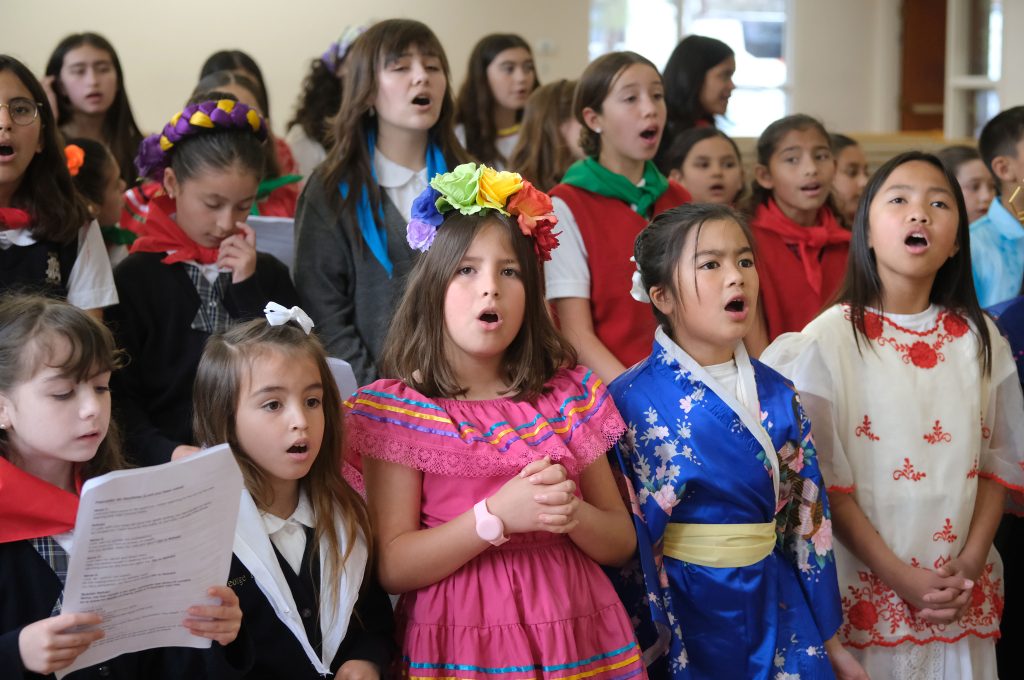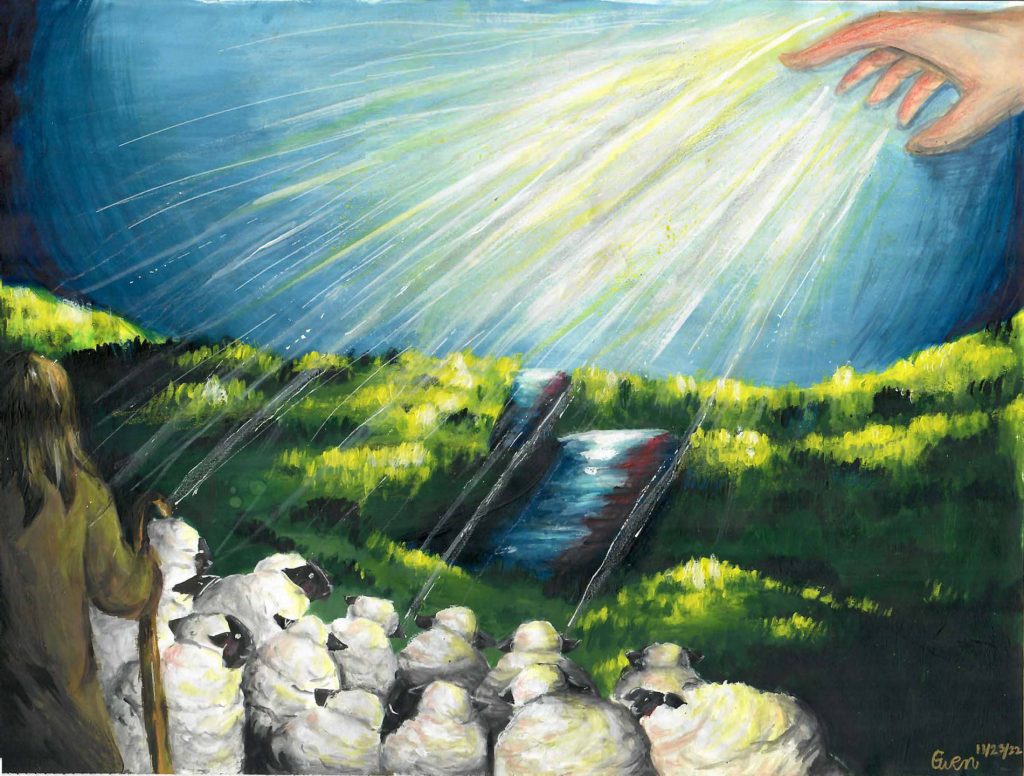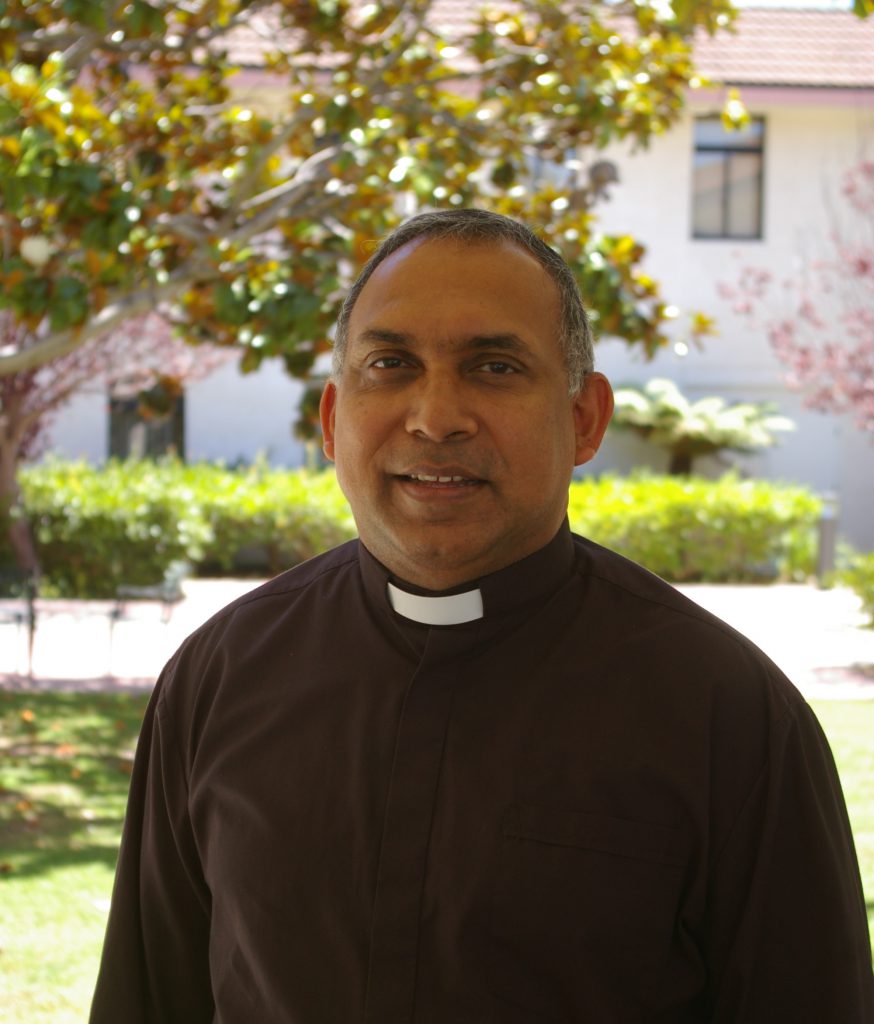Through the diocesan Office for the Missions, we offer our donations — the proceeds of the work of our hands — to aid the poorest and those most in need around the world. But there are ways in which we are also needy, where God’s mission might also extend to us. In a recent article, “Taming the Demon: How Desert Monks Put Work in Its Place” (Commonweal, Jan. 29, 2019), Jonathan Malesic describes his retreat with the monks at the Monastery of Christ in the Desert, N.M. He points out that there are many demons at work in our lives. “Really! Demons!” you might scoff. But, without irony, one of the monks tells Malesic, “Yes, there are many demons. That’s why we’re here.” Among the principal demons is the one that drowns us in work. Think about how often we introduce ourselves to others by asking and answering the question “What do you do?” We allow our jobs to define us. We have a ceaseless, obsessive work ethic. This is a real demon and we’re haunted by it. We are totally under its power. We assess people’s value by their jobs and demean anyone who can’t work. We even give up our vacation time, anxious to prove we’re indispensable. And we drive ourselves to burnout while artificial intelligence lurks behind the scenes, ready to take our jobs. The monks say that our culture is the most obsessive about work. But they also find that, regardless of nationality, it takes time for younger monks to adapt to the monastic schedule and the priority of prayer. Our smartphone age has set new, extraordinary standards for speed and multi-tasking. Another malicious side of this demon is the enticement of expertise. Quality is necessary, but expertise can get in the way of the community’s health and impede a person’s spiritual development. Humility is the first way — the way of truth — and expertise risks pride, the fundamental human sin. Although experts are needed, a monk’s first identity is to be a monk, not an expert. What do the monks of the desert do so differently? They turned down mega-funding opportunities with an Internet web-service because it interfered with their monastic rule — prayer, prayer, work with hands, and prayer — following the rhythm of life. It’s true that our stressful work ethic offers us real goods and opportunities, from increased pay and productivity to the esteem of others. But these come at a cost to our spiritual ideals and our relationship with God, and lead to a general deterioration of life. We are subject to our bosses, to physical and emotional erosion, and the eternal sense that there’s more work to do. The monks take this demon on by limiting their labor while they pursue higher goods. How do the monks do this? They don’t have salaries; there are no promotions and no productivity quotas. They can’t put off today’s holy offices and vow to pray twice as hard tomorrow. They can’t use prayer to prove their worth in another’s eyes. And they never get anxious that robots will replace them. The process for their “opus Dei” (Latin for “work of God”) hasn’t changed in 1,500 years. Monks aren’t against innovation. They were early adopters of water mills to improve their agricultural labor and, today, they happily harvest New Mexico’s sun with solar panels. But nothing gets in the way of prayer. They take their time at it — no rushing; each word is a prayer in itself. They work slowly, steadily, never completing it, and never worrying that it isn’t completed. It is simply not necessary. Ora et labora (Latin for “pray and work”). Both are needed, but prayer has the priority. The value of work is not found in itself but derives from our dignity as persons — human dignity. As St. John Paul II wrote in “Laborem exercens” (1981), “Human work has an ethical value of its own, which clearly and directly remains linked to the fact that the one who carries it out is a person, a conscious and free subject.” If work comes at the cost of a person’s physical or spiritual well-being, it has no dignity or worth. In our economy, we tend to prove our value by our productivity; monks respect each other’s value because of the Spirit in each of us. There are many ways in which the work demon holds us fast, and when it comes to dealing with the demonic demands of our secular world, we are the needy ones. We can’t all live like monks, but we can be missionized by them and learn to put first things first. We can humbly receive their contribution by putting some constraints on our work and subordinating it to our moral and spiritual well-being.
The Southern Cross During the month of May, we thank God for our mothers and all we have received from them. It’s also good to remember the other women who have played an important role in our lives, from grandmothers and aunts to teachers, coaches and mentors of all kinds. But it’s also wonderful to rejoice that as women, we all have a life-long vocation to motherhood, whether physical or spiritual. In his “Letter to Women,” St. John Paul II praised women in their multiple roles: “Thank you, women who are mothers! You have sheltered human beings within yourselves in a unique experience of joy and travail … Thank you, women who are wives! … Thank you, women who are daughters and women who are sisters! Into the heart of the family, and then of all society, you bring the richness of your sensitivity, your intuitiveness, your generosity and fidelity.” John Paul II’s words inspired many women and encouraged greater awareness of their feminine genius. I’d like to encourage women of all ages — but especially those of us who are not so young anymore — to embrace the mission of being spiritual mothers to the younger generations. Evoking the image of a tree that lacks deep roots and falls in a storm, Pope Francis recently wrote that “it is impossible for us to grow unless we have strong roots to support us and keep us firmly grounded.” We achieve groundedness, the pope said, by remaining close to our elders and discovering the living richness of the past, by treasuring its memory and making use of it for our choices and opportunities. Helping young people to do this, the pope said, “is a genuine act of love.” He calls on elders to draw close to the young and journey with them, for the elders have much to teach them. The pope’s recent post-synodal exhortation, “Christus Vivit,” to young people, should inspire those of us who are not so young to be more aware of all that we have to share: “Realize that there is beauty in the laborer who returns home grimy and unkempt, but with the joy of having earned food for his family. There is extraordinary beauty in the fellowship of a family at table, generously sharing what food it has. There is beauty in the wife, slightly disheveled and no longer young, who continues to care for her sick husband despite her own failing health. Long after the springtime of their courtship has passed, there is beauty in the fidelity of those couples who still love one another in the autumn of life, those elderly people who still hold hands as they walk. There is also a beauty, unrelated to appearances or fashionable dress, in all those men and women who pursue their personal vocation with love, in selfless service of community or nation, in the hard work of building a happy family, in the selfless and demanding effort to advance social harmony. To find, to disclose and to highlight this beauty, which is like that of Christ on the cross, is to lay the foundations of genuine social solidarity and the culture of encounter.” Fostering relationships — this culture of encounter, as Pope Francis calls it — is an integral part of the feminine genius. Perhaps your children are grown and you feel that you have completed the job of mothering. Or perhaps, like me, your personal vocation did not include physical motherhood. By virtue of being women, we are called to nurture others, and this vocation of spiritual maternity never ends. So, this Mother’s Day, look around and find the young people you encounter who are in special need of a mentor, an adopted grandmother or a wise friend. Reach out and share life’s journey with them, for together we can learn from one another, warm hearts, and inspire minds with the light of the Gospel.
Father Jon P. Kirby, a member of the Society of the Divine Word, is director of the diocesan Office for the Missions.






